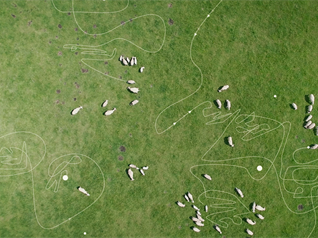 Back to the homepage of the research area
Back to the homepage of the research area
Contribution to ZALF research
The three working groups of the Experimental Infrastructure Platform in Dedelow, Paulinenaue and Müncheberg support ZALF scientists both in the planning and the implementation phase of their projects, with a particular emphasis on the consideration of local aspects and the collaboration with local stakeholders. The services of the working groups include human resources and technical support, the planning, installation and management of field experiments on crop- and grassland, the maintenance and provisioning of field sites, measurement devices and instruments as well as the servicing and operation of technical facilities (e.g. lysimeters, irrigation system). On request, the service groups also conduct crop and landscape measurements as well as mapping and sampling campaigns and document the management of field sites. In addition, the service groups also support scientists from the Research Areas and Research Platform with respect to the organisation of information events for local stakeholders in the study region (e.g. farmers, authorities) and transfer activities such as field days, trials and presentations.
Working groups
Experimental Station Dedelow (Service)
The Experimental Station Dedelow is located approximately 100 km north of Berlin (near Prenzlau). On 42 ha of experimental fields (sandy loam; average soil quality [“Ackerzahl”] 35-45), different agricultural cultivation systems can be realised with modern experimental technology. On site, there are various technical measuring systems such as the TERENO lysimeters and the autonomous measurement of climate gases FluxCrane of "CARBO-ZALF-D“. Dedelow is part of the ZALF Landscape Laboratory "AgroScapeLab Quillow" and supports numerous projects (e.g. DFG Research Training Group BioMove) regarding the planning and implementation of measurement programs in cooperation with farmers.
Contact:
Dr. Gernot Verch
Experimental Station Paulinenaue (Service)

About 30 km west of Berlin, ZALF manages 60 ha of grassland in Paulinenaue on a fen research site founded in 1949 in the "Havelländisches Luch".
For grassland trials on the grazability of rewetted lowland moor, own Uckermärker cattle are used among others. Furthermore, long-term experiments on fertilization, biodiversity, peatland mineralization and stand development of grassland are also running here.
The Paulinenaue site features one of the largest groundwater lysimeter facilities in Europe with over 100 lysimeters and 15 different soil types. Extensive studies on the water balance and nutrient dynamics of lowland landscapes have been carried out here for many years.
In cooperation with neighboring farms, the Paulinenaue research site is a partner of the
AgroScapeLab Quillow landscape laboratory. Here, large-scale projects of ZALF and other research partners are carried out on a landscape scale, e.g. on insect conservation and climate and peatland protection.
Contact:
Dr. Axel Behrendt
Experimental Station Müncheberg (Service)
In immediate vicinity to the ZALF campus, The Experimental Station Müncheberg offers 60 ha of experimental fields for projects. With modern experimental technology, all common crops can be cultivated on predominantly sandy soils (average soil quality [“Ackerzahl”] 21-43). A modern, mobile irrigation system enables targeted experiments on climate change effects on 2 ha of land. Furthermore, the Continuous Fertilization Trial V 140 (since 1963) is located in Müncheberg. In addition, the technicians also support monitoring and measuring programs in the agricultural landscape.
Contact:
Dr. Katja Kramp
 Back to the homepage of the research area
Back to the homepage of the research area
